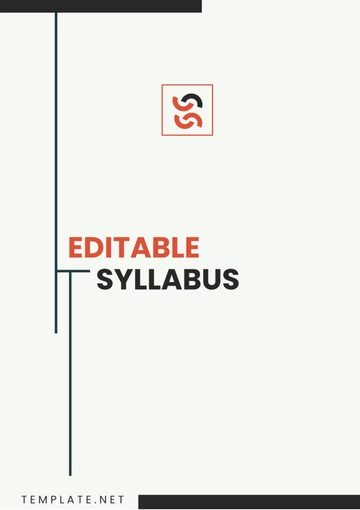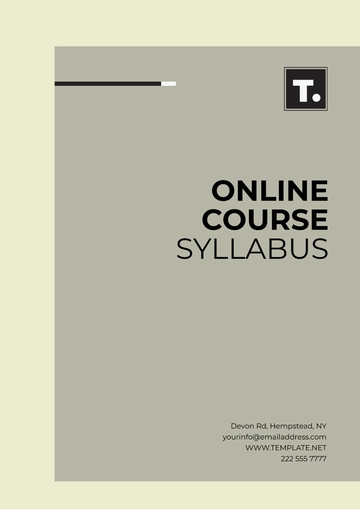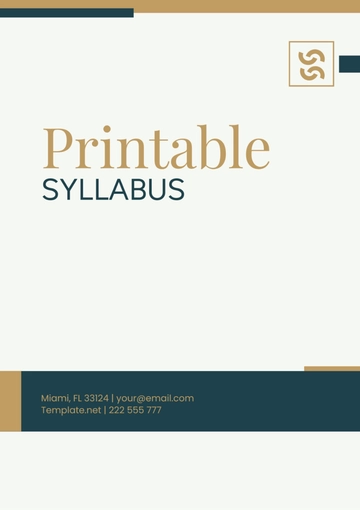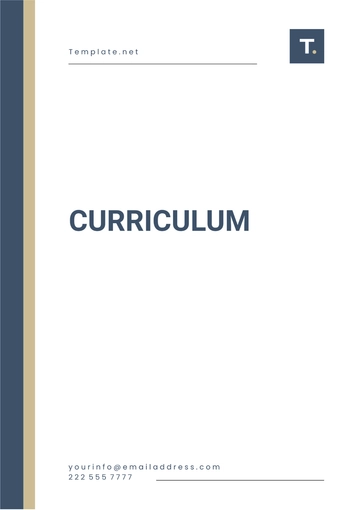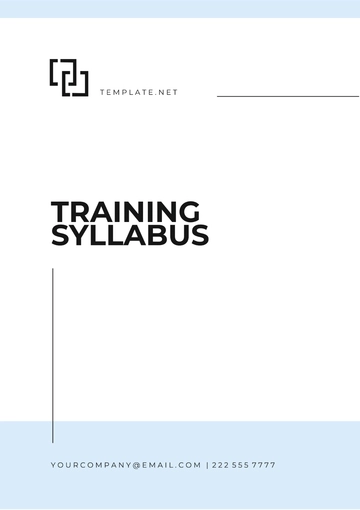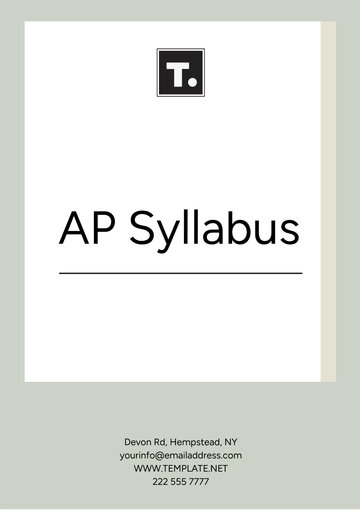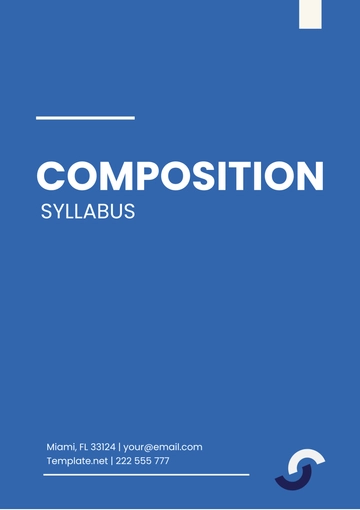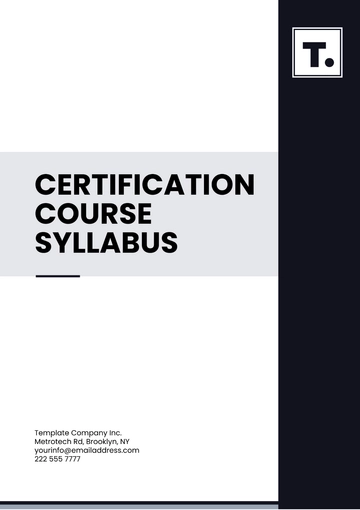Free Environmental Toxicology Syllabus
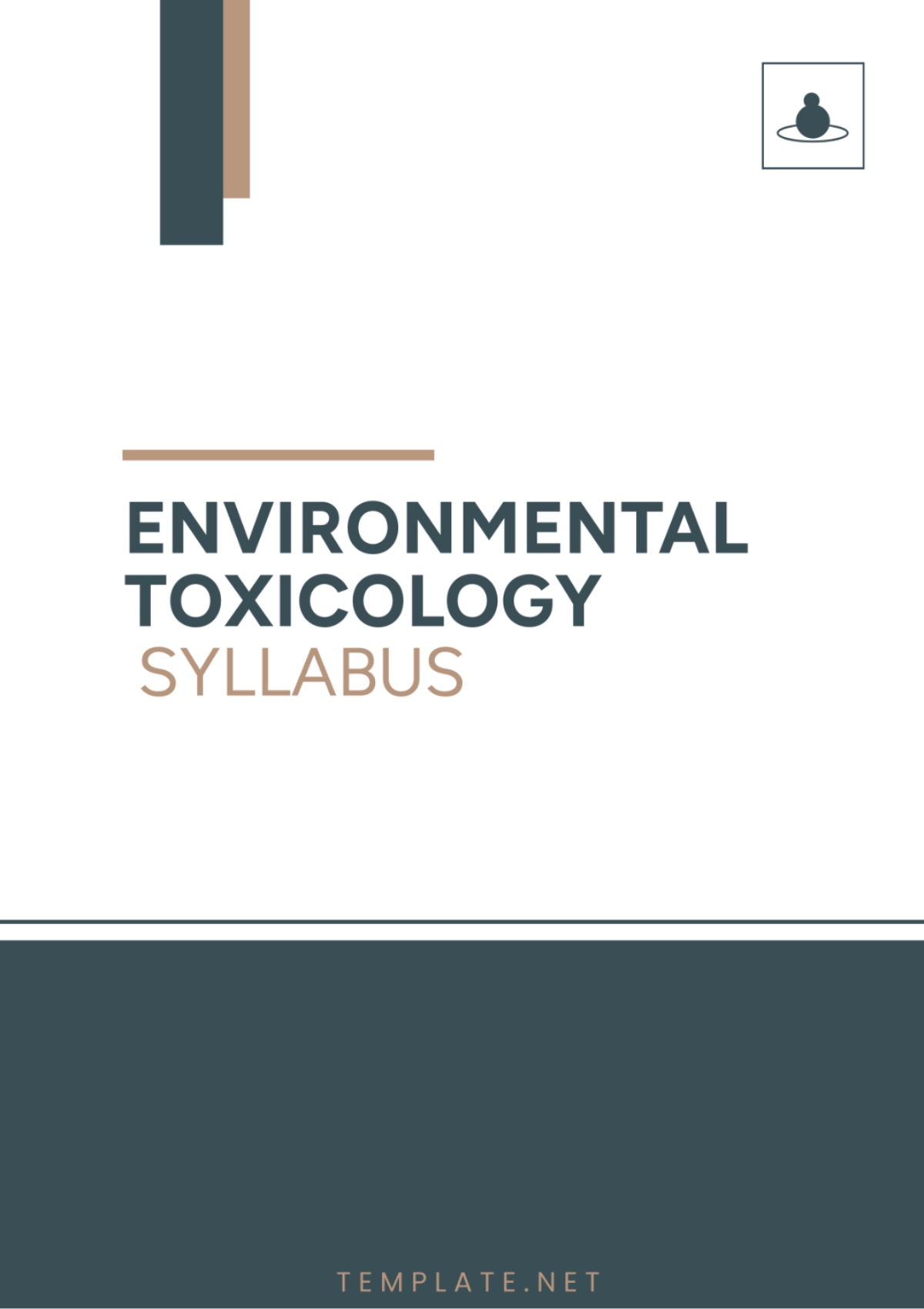
ENVIRONMENTAL TOXICOLOGY COURSE
Course Title | [COURSE TITLE] |
Course Code | [COURSE CODE] |
Instructor Name | [YOUR NAME] |
[YOUR EMAIL] | |
Office Hours | [OFFICE HOURS] |
Class Location | [CLASS LOCATION] |
Class Time | [CLASS TIME] |
Class Duration | [DATE] - [DATE] |
1. Course Title and Description
An in-depth insight into Environmental Toxicology and its vital importance in understanding the danger of pollutants to life on earth. This course, organized and conducted by [YOUR COMPANY NAME], aims to equip students with the knowledge required to assess, prevent, and control environmental hazards.
2. Learning Objectives
Understand the basic principles of toxicology and its application to environmental issues
Assess the environmental and human health risks associated with exposure to toxic substances
Learn techniques for evaluating the toxicity of substances and assessing their harm to the environment and public health
Gain familiarity with policies and regulatory frameworks governing exposure to toxic substances
Develop skills in interpreting and communicating technical scientific information to the public
3. Course Schedule
Week | Topic | Assignments |
|---|---|---|
1 | Introduction to Environmental Toxicology | Reading Assignment |
2 | Risk Assessment | Case Study Analysis |
3 | Toxicity Testing | Group Project |
4 | Chemical Analysis Methods | Lab Report |
5 | Policy and Regulation | Final Exam |
4. Required Reading and Materials
"Principles of Environmental Toxicology" by I. Shaw
"Toxicology: The Basic Science of Poisons" by C. D. Klaassen
"Handbook of Environmental Risk Assessment and Management" by P. Calow
Various research articles and case studies (will be provided throughout the course)
Lab kit (will be provided by the university)
5. Assignments and Assessments
Reading Assignments: Students will be assigned readings from the textbooks and case studies.
Case Study Analysis: Students will analyze a real-world case of environmental toxicity.
Group Project: The class will be divided into groups to work on a project regarding risk assessment.
Lab Reports: Students will report on their findings from the lab kits.
Final Exam: A cumulative exam covering all the material taught over the five weeks.
6. Course Policy
Late Submission Policy: Submission of assignments after the due date will result in a 10% deduction for each day late.
Attendance Policy: Regular attendance is required. More than two absences without a legitimate reason may result in failing the course.
Academic Integrity: Plagiarism and cheating are serious offenses and will be dealt with in accordance with the university’s policies.
Classroom Behavior: Disruptive behavior will not be tolerated. Respect for others is mandatory.
Communication Policy: Email is the preferred method of communication outside of class hours. Please allow 24 hours for a response.
7. Grading Policy
Grade Component | Percentage |
|---|---|
Assignments | 30% |
Mid-term Exam | 20% |
Final Exam | 30% |
Participation | 20% |
Disclaimer
The company by the name of [YOUR COMPANY NAME] hereby maintains and reserves the sole right to implement any alterations and modifications to this current syllabus whenever it deems necessary. Any such changes which are undertaken will promptly be communicated to all relevant and affected students through the official channels and mediums employed by [YOUR COMPANY NAME].
- 100% Customizable, free editor
- Access 1 Million+ Templates, photo’s & graphics
- Download or share as a template
- Click and replace photos, graphics, text, backgrounds
- Resize, crop, AI write & more
- Access advanced editor
Introducing the ultimate Environmental Toxicology Syllabus Template, meticulously crafted for educators and institutions. Discover a range of customizable and editable document templates tailored to your needs. From comprehensive course outlines to detailed lesson plans, Template.net offers the tools you need to streamline your curriculum development process. Explore our AI Editor Tool for effortless customization.

